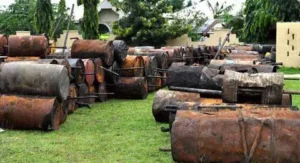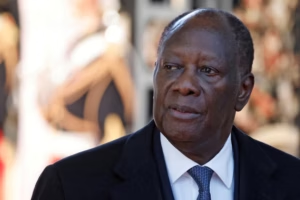
President Bola Tinubu on Thursday declared a state of emergency on food security as the Federal Government stepped up efforts to tackle food inflation following the removal of fuel subsidy.
Tinubu also approved that all matters pertaining to food and water availability as well as affordability, as essential livelihood items, be included within the purview of the National Security Council.
This is to be followed by an immediate release of fertilisers and grains to farmers and households to mitigate the effects of the subsidy removal.
Special Adviser to the President on Special Duties, Communications and Strategy, Dele Alake, disclosed this to State House correspondents on Thursday, after consultations with key stakeholders in the agricultural sector value chain at the Presidential Villa, Abuja.
Alake was accompanied to the briefing by the Special Adviser to the President on Revenue, Zacheaus Adedeji; Special Adviser on Industry, Trade and Investment, John Uwajumogu; Acting Comptroller General of Nigeria Customs Service, Wale Adeniyi; a member of the Presidential Advisory Council, Dr Dorris Anite, among others.
Explaining the development, the Presidential aide said, “Mr. President is not unmindful of the rising cost of food and how it affects the citizens. While availability is not a problem, affordability has been a major issue for many Nigerians in all parts of the country.
“This has led to a significant drop in demand, thereby undermining the viability of the entire agriculture and food value chain.
“Accordingly, in line with this administration’s position on ensuring that the most vulnerable are supported, Mr. President has declared, with immediate effect, the following actions: That a state of emergency on food security be announced immediately, and that all matters pertaining to food and water availability and affordability, as essential livelihood items, be included within the purview of the National Security Council.â€
Clarifying the short, medium and long-term interventions, Alake said the administration intends to deploy some savings from the fuel subsidy removal into the agricultural sector, focusing on revamping the agricultural sector.
He cited existing data that agriculture already accounts for about 35.21 per cent of employment in Nigeria (as at 2021).
“The target is to double this percentage to about 70 per cent in the long term,†he added.
Parts of the interventions include the immediate release of fertilizers and grains to farmers and households to mitigate the effects of the subsidy removal.
At the meeting with agriculture stakeholders earlier on Thursday, the President had declared that the country could no longer afford seasonal farming.
“We can no longer afford to have farming downtimes,†Alake echoed Tinubu’s words.



